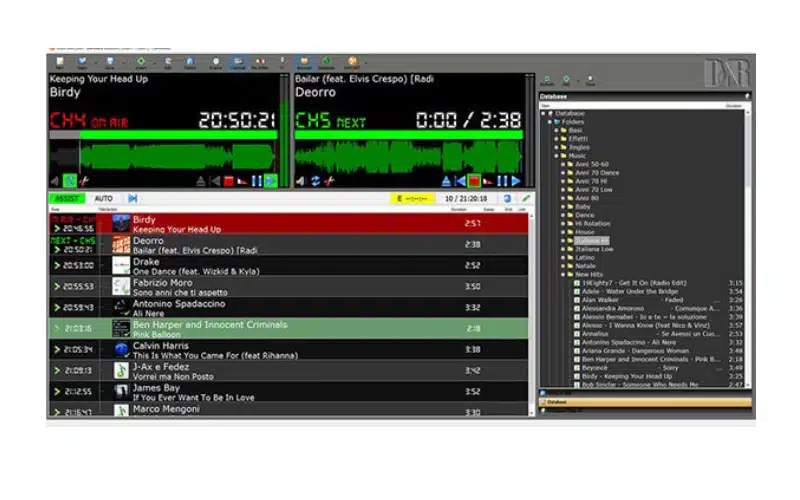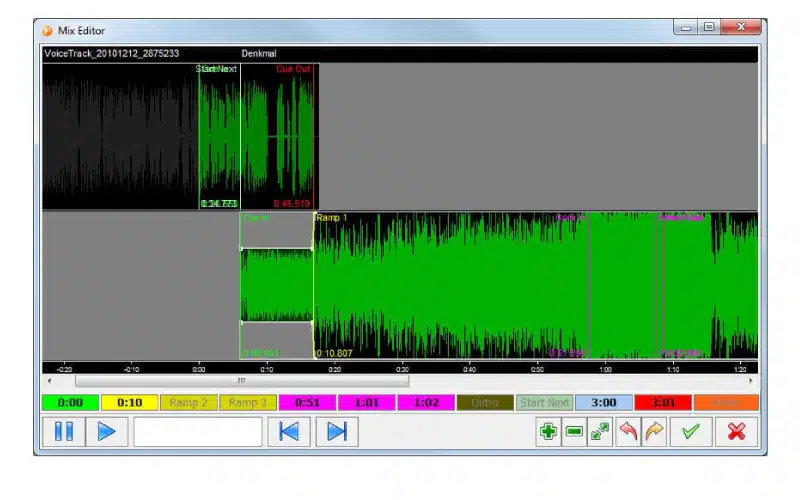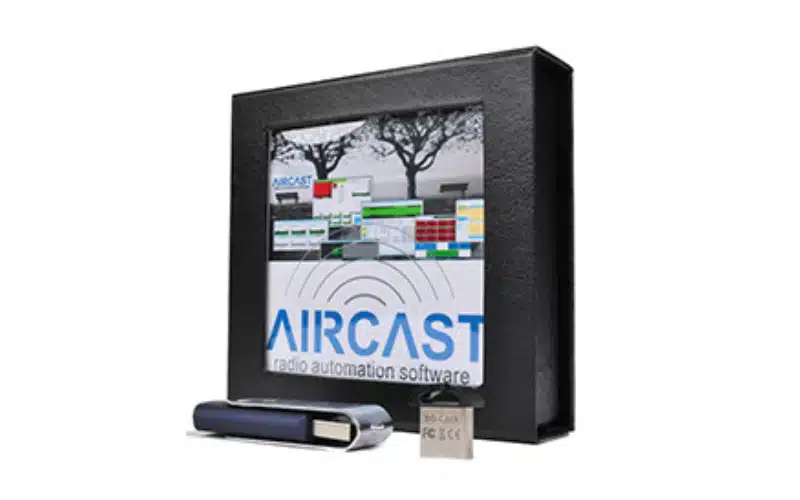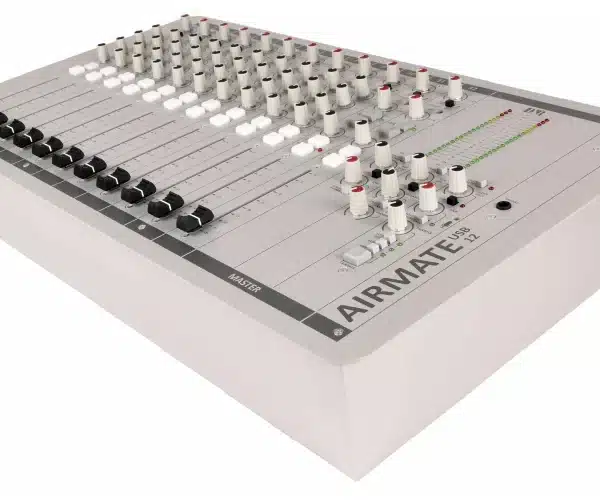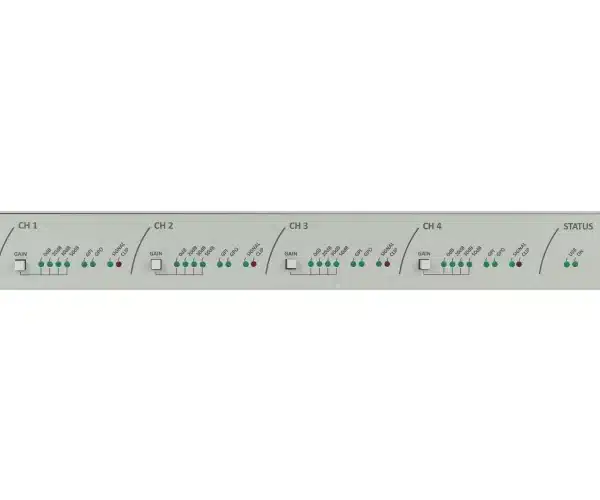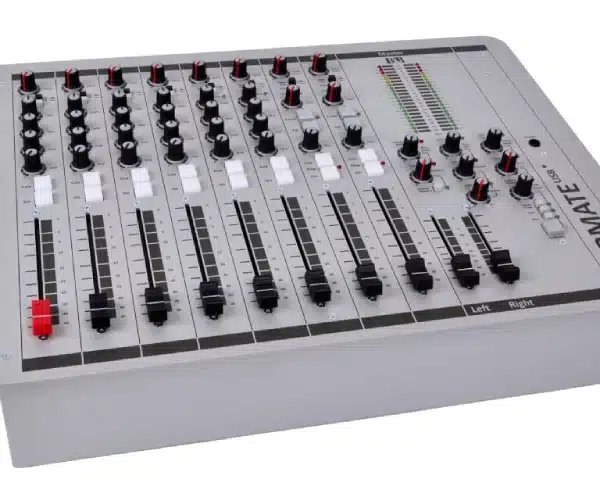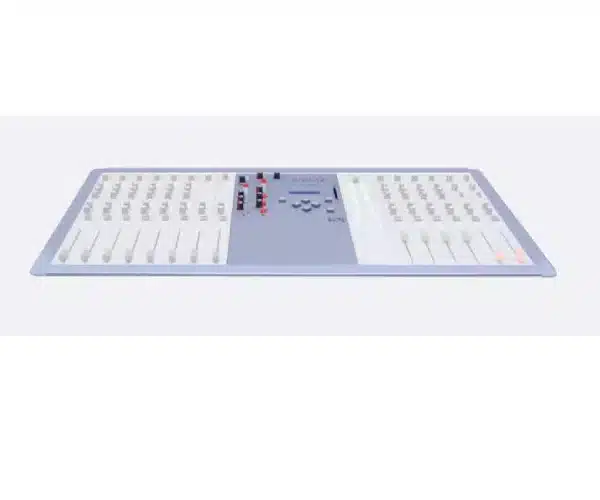Description
AIRCAST-VT:
- User can remotely do VoiceTracking and log on to an AIRCAST STD-DB license elsewhere. (LAN/WAN)
Built-in music scheduling
Aircast-DB includes the Mini Scheduler that creates random playlist or music logs based on freely configurable hour templates.
Thanks to the two-phase scheduling approach, clocks and music templates can be defined separately, and combined freely.
Playlists generated through the Mini Scheduler can be reviewed and edited through the Playlist Editor at any time.
For fully unattended systems, just-in-time scheduling is available through the Event Scheduler in the playout module.
Third-party databases
The flexible database layer of Aircast allows you to connect not only to Aircast-DB but also to databases from third-party vendors.
A number of database types, e.g. iTunes, is supported out of the box.
Others can be added using AircastScript, accessing arbitrary SQL databases, XML files or web services.
Advanced Database and Advertising Scheduling
Aircast-DB includes a simple ad scheduling function that allows you to set up scheduled playback of spots according to a configurable day/hour/block grid.
The number of available blocks per hour is technically unlimited.
Again, you can choose to import logs from 3rd party software (e.g. uki.system) instead of using the internal scheduler, or combine internal and external scheduling.
Music log import
For those who wish to work with an external music scheduling solution, a variety of import filters is available (e.g. MusicMaster, Powergold, M3U, etc.).
Music imported from external sources can be mixed with content scheduled by Aircast’s Mini Scheduler, or you can use the internal scheduler as a fallback if the import fails for any reason.
We also have import/export filters available (or can create them) for library synchronization with the most popular music scheduling systems.
Playlist editor
For each day and each hour, you can save a playlist (created manually or automatically through the Mini Scheduler) which is later grabbed and played by the playout module.
AircastScript
Using the Aircastscript language, you can extend the functionality of the software. For example, you can create a script that adds custom content downloaded from the web to the playlist, or a script that sends commands to a remote control device every time a player is started.
Streaming Encoder
Aircast includes a streaming encoder that broadcasts the audio output of the players and/or a signal recorded from a soundcard input to any Shoutcast or Icecast compatible streaming server.
Direct broadcast to the streaming server is supported even for PCs or servers that have no built-in audio hardware.
You can broadcast the signal to multiple servers simultaneously, and use the Aircheck function to create audio files of the streamed signal (supported audio file formats subject to available codecs.)
External DSP plugin support
In addition to the built-in effects, external sound processing plugins (in VST or Winamp DSP format) can be used in the encoder.
Database and Scheduling
Aircast-DB is an SQL-based database backend for managing your audio library and music schedules.
Setting up an Aircast-DB is optional – you can just load your playlist from the file systems – but Aircast is much less powerful without it.
In the base version, Aircast-DB stores all data in a single database file on the local hard drive (using SQLite), and is designed to be used from a single workstation.
Audio library
Pointing it at your audio folders, Aircast-DB will scan your hard drive for audio files and register them in the audio library.
This is where all metadata about the items is stored, e.g. artist/title information, cue markers etc.
The (virtual) folders you create here will be the basis for the music scheduling function (Mini Scheduler).
system requirements
Aircast works on any standard PC running Microsoft Windows (XP, Vista, 7, 8 or 10) or Windows Server (2008 or above). Both 32 and 64 bit.
On Windows Server, you must install the Desktop Experience Feature in order to get the required codecs for MP3 playback. On Windows Desktop OS, these codecs are already included through Windows Media Player.
Aircast has very low requirements regarding the performance of your PC.
On a current i5 CPU, a running Aircast process will typically only consume 2-3% CPU (excluding encoders and sound processing) and less than 50 MB RAM.
The required disk space for a base setup (without database and caches) is just about 30 MB.
Due to the extensive support for several audio APIs (DirectSound, WASAPI, ASIO), Aircast will work with virtually any Windows-compatible soundcard. In rare cases, it is necessary to tweak some advanced settings in the Aircast audio configuration or driver settings. Whenever possible, we recommend that you test the compatibility between Aircast and your existing audio hardware using our demo version.
For fully automated encoder-only instances (direct streaming to Shoutcast/Icecast), Aircast does not require any audio hardware at all – you can even run it on datacentre servers. Physical hardware is preferred over virtual machines though. Virtual machines will work if the Windows real-time clock is working properly.
Direct access and integration with our consoles:
D&R WEBSTATION
– 12 Control Switches + encoder
– ON (USB channels only)
– CUE (USB channels only)
– FADERSTART (USB channels only)
D&R AIRLITE
– 16 Control Switches
– ON
– CUE
– FADERSTART
– SOURCE SELECT
– ON-AIR1/2
– CUE RESET
D&R AIRENCE
– 24 Control Switches + encoder
– ON (USB channels only)
– CUE (USB channels only)
– FADERSTART (USB channels only)
D&R AIRLAB-DT
– Faderstarts
– 24 Control Switches + encoder (If Control module is present)
D&R AXUM | AXITE
– Faderstarts
– 24 Control Switches + encoder (If Control module is present )
